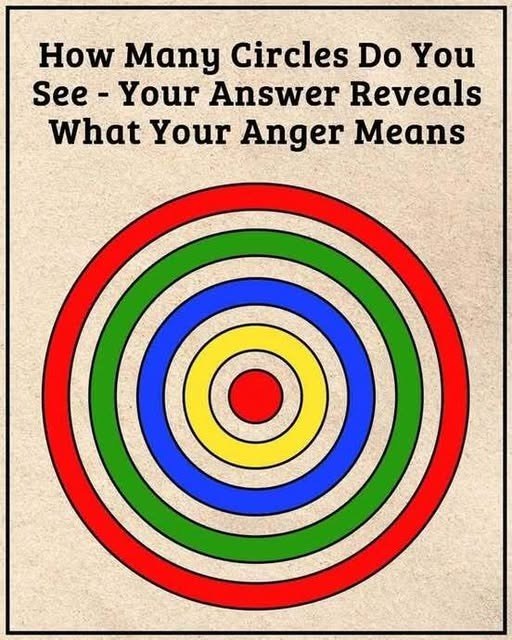Few subjects in the vast, ever-changing sea of social media content—memes, quizzes, viral challenges—spark as much curiosity as quick, visually arresting “personality tests.” You’ve probably scrolled past one of these during a break, only to find yourself pausing. Maybe you came across an image featuring colorful concentric circles and a bold, intriguing claim: “The Number of Circles You See Determines If You’re a Narcissist.”

It’s a simple prompt that carries a powerful hook. Without realizing it, you find yourself squinting at the screen, counting each circle carefully, maybe even second-guessing yourself. Did you count 12? Or 16? What does that say about you? You might even share it with friends or post it in a group chat to compare results—part fun, part self-exploration, part subtle curiosity about how others perceive themselves.
This seemingly silly meme taps into something very human and surprisingly timeless: our deep-rooted desire to understand who we are, what makes us tick, and how we compare to others. We want to decode our personalities—not just for personal insight, but to gain a sense of identity, validation, or even superiority. A simple image that promises to diagnose something as layered as narcissism with a quick visual test? It’s irresistible in its simplicity and absurdity.
And in today’s culture, where personality assessments have gone mainstream, this makes perfect sense. We see endless quizzes: What Type of Bread Matches Your Mood?
Which Animal Is Your Soul Twin? Or more serious ones like the Enneagram or the Myers-Briggs Type Indicator. These tools—whether silly or scientific—offer what feels like clarity in a complex world. They give us language to describe ourselves, labels to hold onto, and explanations for why we are the way we are.
So when a viral meme dares to reduce something as complicated as narcissism to a quick circle-count, we don’t necessarily question the science—we just enjoy the idea. It’s entertainment with a sprinkle of introspection, an opportunity to laugh and learn, or at least pretend we’re learning something meaningful.
In the end, what these tests reveal may not be psychological truth—but they do expose our fascination with identity. And in a world of filters, curated profiles, and digital impressions, that fascination is more relevant than ever.